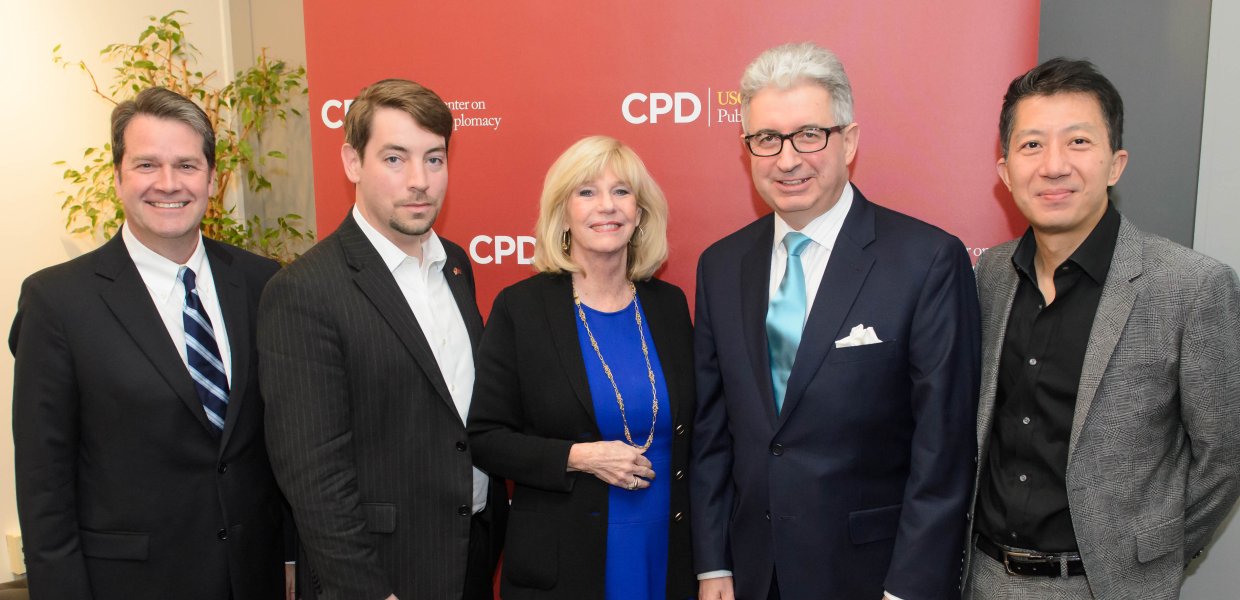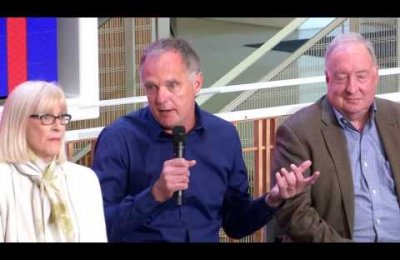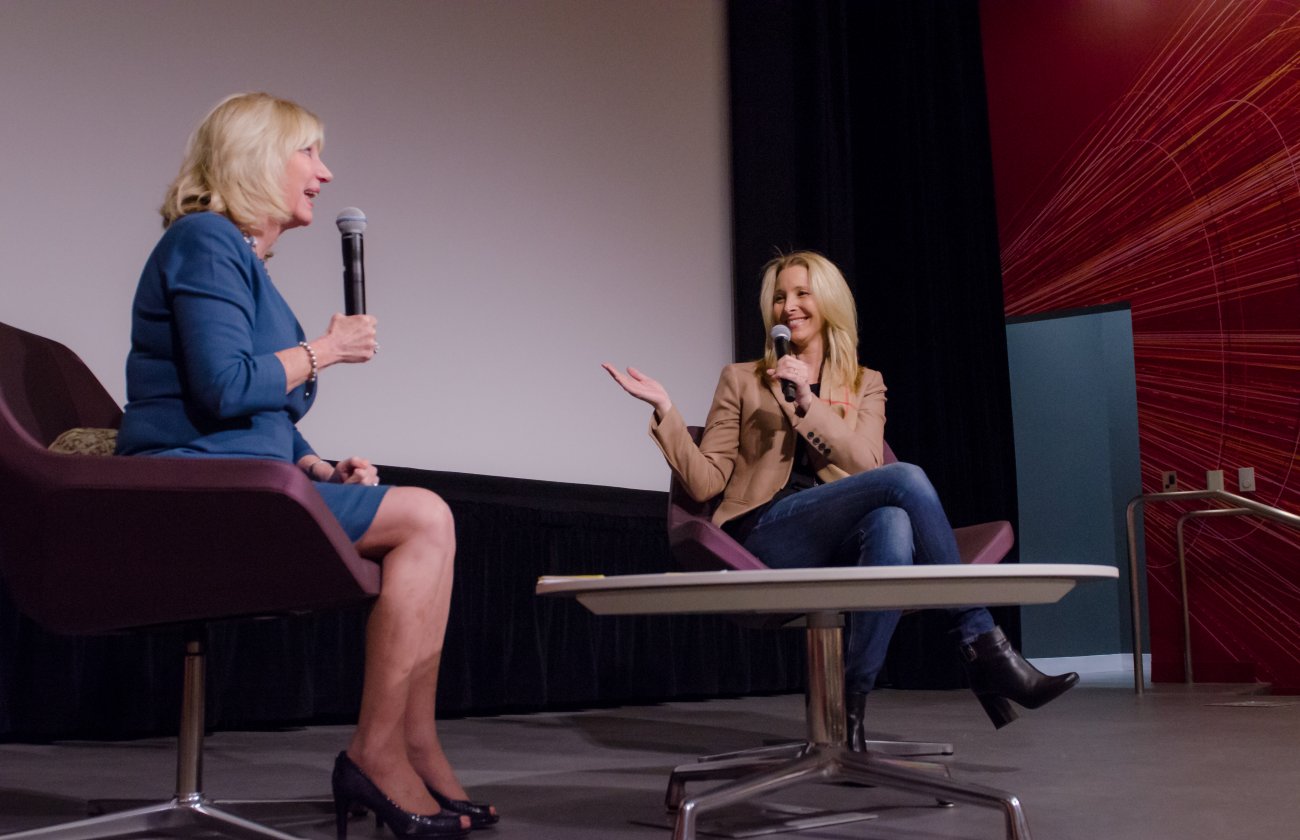At one time, Diana, Princess of Wales, was one of the world’s most well-known and beloved public figures. Prior to her death in 1997, she travelled the world visiting and working with countless charities, fostering a legacy as an advocate and a diplomat that lives on today.
On January 13, Patrick Jephson, who served as her only Chief of Staff for nine years, visited USC Annenberg to discuss how he helped Princess Diana — as she’s commonly known — develop her personal brand as she involved herself in global affairs.
Jephson was joined by Brett Bruen, president of the Global Situation Room and former director of global engagement at the White House; and Bill Beaman, founding partner of OnPoint Strategies and a professor of public communication at American University, in a conversation moderated by USC Annenberg professor Mary Murphy.
The event, which was the first in a series of lunchtime discussions to be held by the USC Annenberg Center for Public Diplomacy this semester, used Princess Diana’s diplomatic success to examine how diplomats cultivate their brand in order to assist their countries.
Bruen started the discussion by explaining that developing a personal brand, in terms of having global impact, hinges on three things: defining who you are, finding ambassadors that will tell your story and setting goals for yourself.
“There ought to be a goal because that will dictate everything else that you do,” Bruen said.
He admitted, though, that branding is easier said than done.
“One of the most challenging things about diplomacy is how you create your personal brand while still being part of a restrictive entity,” Bruen said.
Having married into England’s royal family, Princess Diana felt these restrictions more than most. While the royal family is a political institution, Jephson said, it relies heavily on tradition. As the wife of a future king, Princess Diana’s primary responsibilities were to look pretty and produce heirs, but she decided early on that she wanted to do more.
Jephson said the English monarchy has become more modern since the First World War. The royal family has become more “accessible” and has begun acting as “roaming ambassadors” for England. The women, especially, have become more involved in philanthropic endeavors, and Princess Diana was no exception.
A big part of Jephson’s job was deciding where in the world she would travel to work with charities. Prior to their trips, he recalled, she would often tell him, “Let’s go conquer the world.”
“She, in a sense, stopped being Britain’s princess and became the world’s princess,” Jephson said.
According to Jephson, Princess Diana could connect with anyone, anywhere, because she spoke their language: “the language of compassion, of need, of recognition.”
She once explained to Jephson that she was able to easily connect with people who felt like outsiders because she always felt like an outsider in the royal family. This conversation led to Jephson’s revelation that “outsiders make the best diplomats.”
However, the quality that made her most unique and successful as a global figure was forgivability, which became a focal point of the panel’s discussion. All three of the panelists agreed that forgivability is invaluable in public affairs and that not everyone possesses it.
Beaman, a former journalist, said media skepticism has always been a roadblock for all celebrity diplomacy and advocacy because journalists expect them to lack purpose and sincerity. As a result, developing a positive brand and earning forgivability takes time.
But when it is earned, Jephson said, audiences will typically give the forgivable person “the benefit of the doubt,” which can be crucial in a crisis.
“If you can earn forgivability, then when the crisis strikes, which it will, you won’t just survive it. You will be able to turn it to your advantage,” Jephson said.
Princess Diana, he said, was always able to turn crisis into opportunity.
“The ones who do best and earn the most forgivability for themselves and their governments are those who are really very good at their jobs,” Jephson said.








